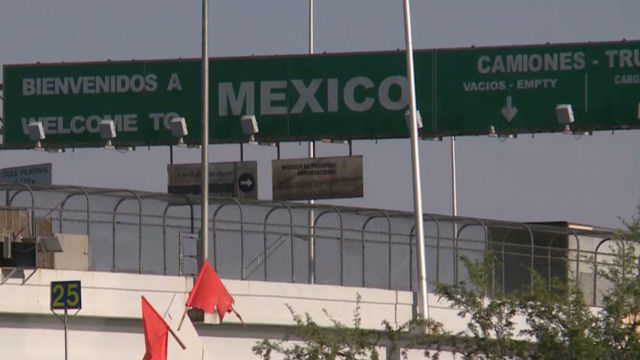The U.S., Canada, and Mexico say talks on the North American Free Trade Agreement (NAFTA) will press ahead despite Washington’s steel and aluminum tariffs. But recent tensions between the U.S. and Canada are casting doubt on whether a deal is possible.
CGTN’s Steve Mort reports.
At Allen Russell’s warehouse in the border city of El Paso, materials are processed for shipment to factories in Mexico. His company depends on those shipments being tariff-free under NAFTA, so he rejects President Trump’s claim that the trade deal is the worst ever made.
“It is not the worst trade deal. It has done more for North America than could even have anticipated.”
Russell’s business provides U.S. corporations with manufacturing facilities employing around 8,000 people in Mexico, where labor costs are lower. He fears that without NAFTA, his cost of doing business will rise.
“The American consumer is going to pay the bill,” according to Russell. “The product is just going to be more expensive. It doesn’t mean anybody is going to move from Mexico to the US to produce the product.”
Visiting one of the longest stretches of unprotected border between the US and Mexico to find out how locals here view the idea of constructing a border wall – for @cgtnamerica pic.twitter.com/9eHAlXrHOB
— Steve Mort (@mobilemort) June 13, 2018
The US-Mexico border region is one of the largest in the world. Its population exceeds 2.5 million, with an economy to match. Mexico is Texas’ largest export market, with cross-border trade worth hundreds of billions annually.
More than 1/5 of that trade crosses the border in El Paso.
Thomas Fullerton, a professor at the University of Texas at El Paso, studies the region’s economy and the potential impact should NAFTA talks fail.
“It will throw a monkey wrench into how things operate rather seamlessly at this point,” he explained. “Existing operations will probably remain in place, but the level of investment and business formation will plummet.”
But not everyone is so sure. Nicole Grado’s company sells packaging. Up to 90 percent of her customers ship internationally. She’s looking for ways to diversify her business and says she’s confident other US companies could thrive without NAFTA.
“There would be changes, but I think it’s like everything: you adjust to those changes and you adapt,” the CEO said. “You figure out ways to continue moving forward.”
While the outcome of the NAFTA talks remains far from certain, business on the border continues. El Paso’s economy is projected to grow two percent in 2018.
But most here hope a long-term deal can be reached soon, to avoid the lingering uncertainty hanging over this region’s economy.
 CGTN America
CGTN America

